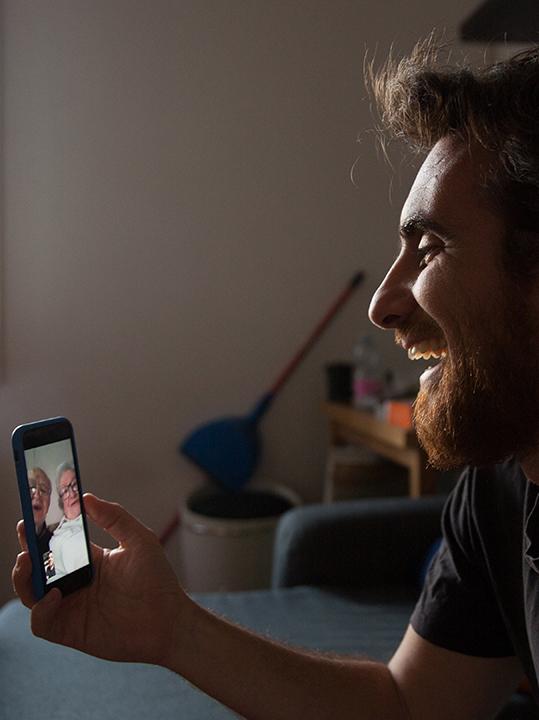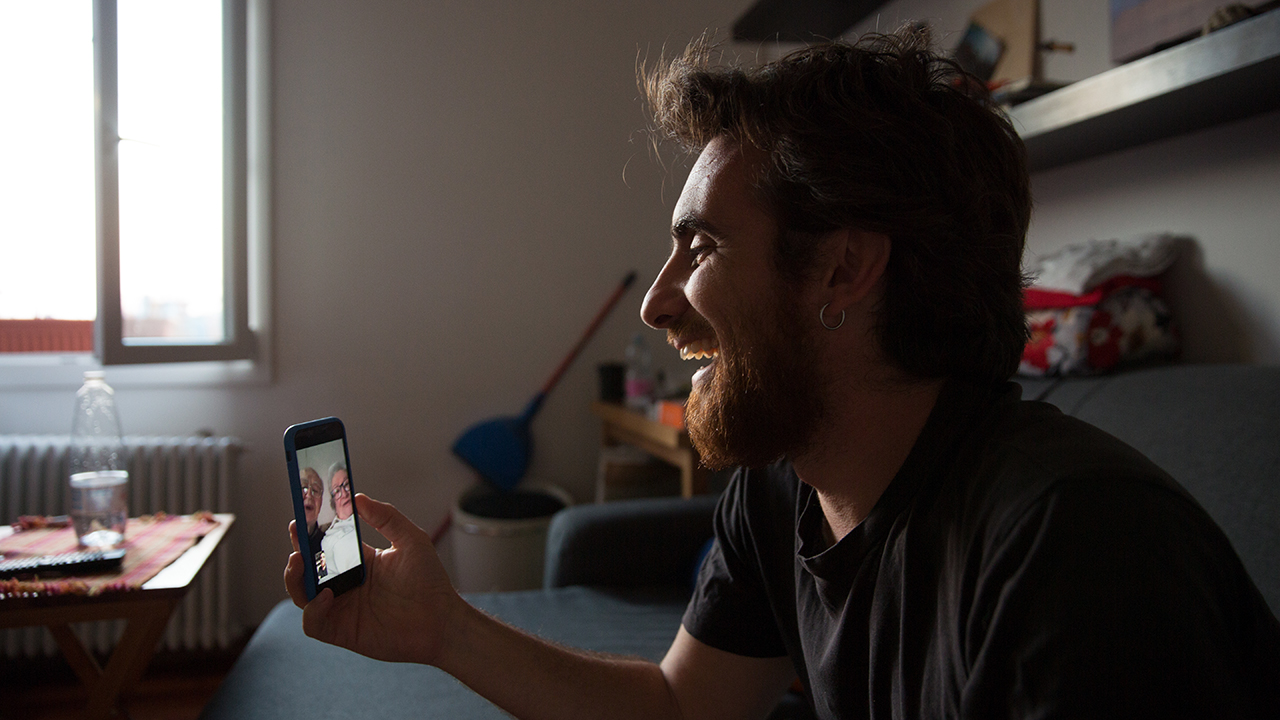Older people feel more lonely when they communicate online.
The internet in general, and social media in particular, has transformed people's lives and opened up a new world for the elderly, especially during the pandemic when face-to-face interactions were limited. Many older adults used phones, FaceTime, and messaging apps to stay connected with family and friends during lockdowns. Zoom calls, online book clubs, and bedtime stories told by grandparents to their grandchildren over the phone helped many escape isolation.
However, according to The Guardian, a recent study indicates that during the pandemic, online communication made people over 60 feel more lonely and depressed than not communicating at all. “We were surprised to find that an older person who used a smartphone to communicate during the pandemic experienced more loneliness and negative emotions than someone who had no online contact with others,” said Yang Hu, co-author of the study.
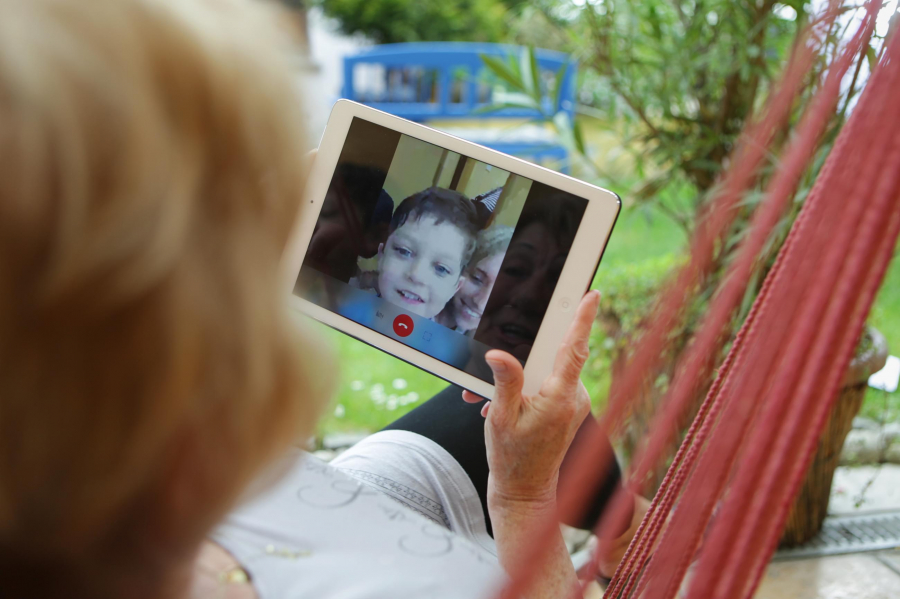
Older adults may experience feelings of loneliness over extended periods, a consequence of the shift to online socialization.
Yang Hu shared that the research team had expected that online contact would be better than complete isolation, but that didn't seem to be the case for older adults: "They experience increasing levels of loneliness and mental health problems over a long period, stemming from the transition to online socialization."
Yang Hu stated that the problem lies in the fact that older people, who are not very tech-savvy, find it difficult and tiring to learn how to use them. However, even those already familiar with electronic devices find that excessive use causes stress to the point of harming their mental health, rather than simply being a tool to cope with boredom and feelings of loneliness. "Excessive exposure to electronic devices can lead to burnout," Yang Hu added.
pressure due to negative information in the virtual space.
Many young people experienced increased psychological problems during the Covid-19 pandemic, mainly due to difficulties caused by the disease, conflicts in relationships with family and friends, and negative information about social events.
According to psychologist Pham Thi Thuy, during the recent lockdowns, she frequently received "calls for help" from young people suffering from depression due to the impact of Covid-19. They often asked about anxieties and stress from facing difficulties caused by the pandemic, family issues, marital relationships, and how to raise children at home... "One young man, nearly 30 years old, called me with feelings of loneliness and despair. He is unmarried, and his spirits are constantly unstable and isolated. His job is unstable during the pandemic, coupled with negativity in previous relationships, causing him to complain," Thuy said.

Online connections tend to amplify loneliness.
Many experts also believe that young people are even "lonelier" because they spend most of their time on virtual relationships.The endless possibilities of interactions on the Internet also reduce tolerance for solitude, increasing the likelihood of such experiences.Expectations regarding the number, speed, and frequency of social media user connections.Furthermore, the gap between the real and virtual worlds makes them vulnerable to deep hurt. The distance created by the pandemic also leads to misunderstandings and hurt feelings among many people.
Therefore, although it may sound contradictory, online connections tend to amplify loneliness. "Technology and the internet provide people with better knowledge and connections, but spending so much time and energy on countless 'virtual connections' can lead to real-life relationships being neglected," observes Dr. Elias Aboujaoude, a psychologist at Stanford University, regarding the intersection of psychology and technology.
What solution do we have?
Technology is like a mental tonic for people these days. Through Facebook, Zalo, Skype, etc., we can still communicate with family, friends, and colleagues. But no matter how modern technology becomes, it cannot replace direct interaction. Direct contact helps the body release oxytocin, a hormone that reduces stress, improves memory, and extends lifespan. Conversely, virtual communication forces the brain to process a lot of information, leading to stress over time.

Facebook, Zalo, Skype... none of them can replace the "usefulness" of a handshake.
For older peopleThe development of the technological revolution has made connecting with society simpler and more accessible. The virtual world is certainly fun, but prolonged use of electronic devices can negatively impact the health of the elderly, causing problems such as reduced vision, dizziness, fatigue, and a lack of physical activity.
Providing emotional support to the elderly during the pandemic is crucial, as it affects their immune system. Studies have shown a close link between emotions and the immune system. When we are anxious, sad, or depressed, our immune system weakens. Therefore, help them maintain a positive attitude, a healthy diet, and exercise to improve their health and resistance.
And the advice here, for young people, is to care for and talk to your grandparents and parents more. Ask about their feelings to see if online connection truly brings them the joy and convenience we think it does. Instead of just showing them how to access Facebook, Zalo, etc., sit down and tell them your stories. Because ultimately, the main purpose of most elderly people using the internet is not for entertainment, but to make it easier to communicate and stay close to their children, grandchildren, and relatives..
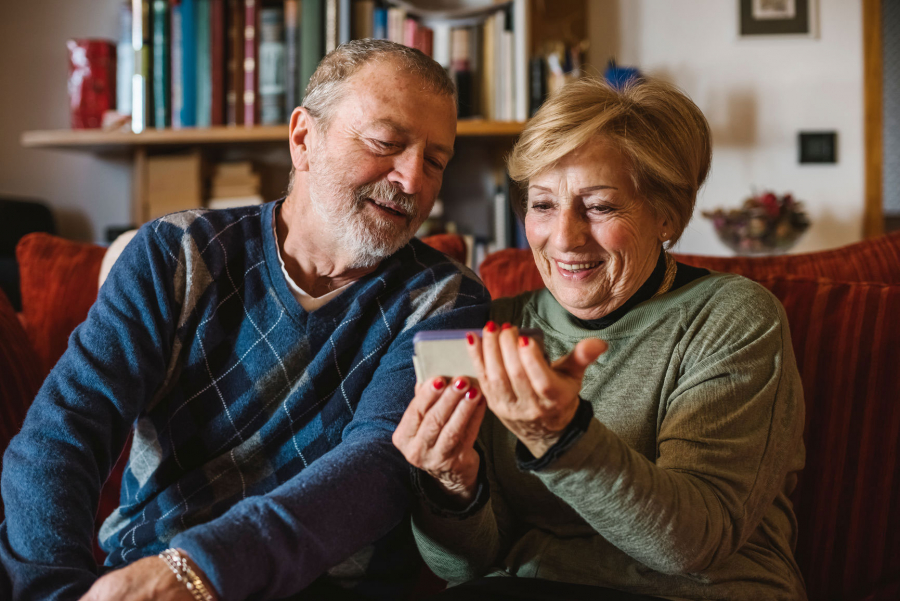
The main reason most elderly people use the internet is not for entertainment, but to make it easier to communicate and stay close to their children, grandchildren, and relatives.
And as for young people...Many people are experiencing psychological stress due to Covid-19 statistics, feeling scared by the increasing number of infections, fake news, and bad news. According to psychology experts, staying updated on the news is necessary, but you shouldn't read too much negative information.
Instead of feeling discouraged and complaining, you should take advantage of this opportunity to do more useful things. This is a golden opportunity to learn new knowledge and develop new skills.online classesYou can learn a foreign language, write, read books, plant trees, etc. These activities will not only give you knowledge, but also bring you joy, confidence, and increase your self-worth.
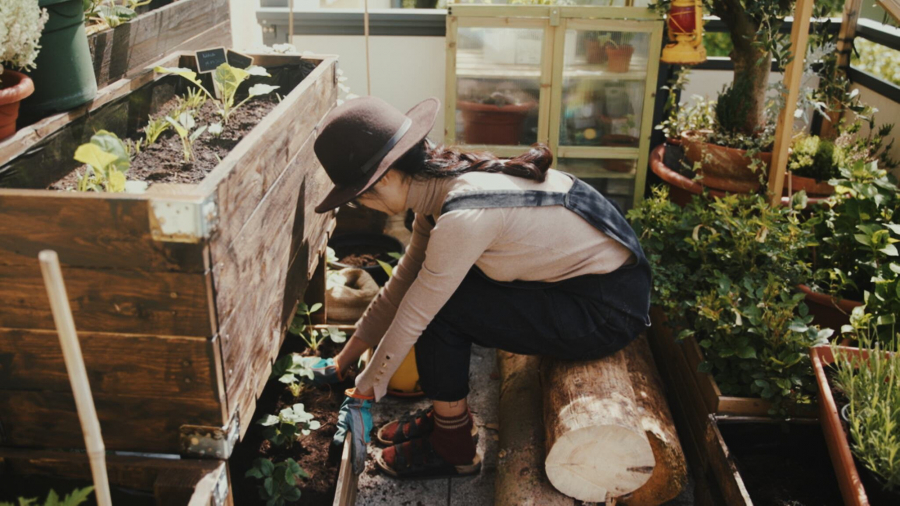
Focus on the small things in life to increase your joy and self-confidence.
You can also take advantage of the time to exercise at home, sweating it out, detoxifying your body, and making yourself healthier, happier, and boosting your immune system. Psychologist Pham Thi Thuy also advises young people to arrange their time for eating, resting, and recreation scientifically, and not to indulge themselves by watching movies too late at night, being lazy, or sleeping in...

 VI
VI EN
EN



